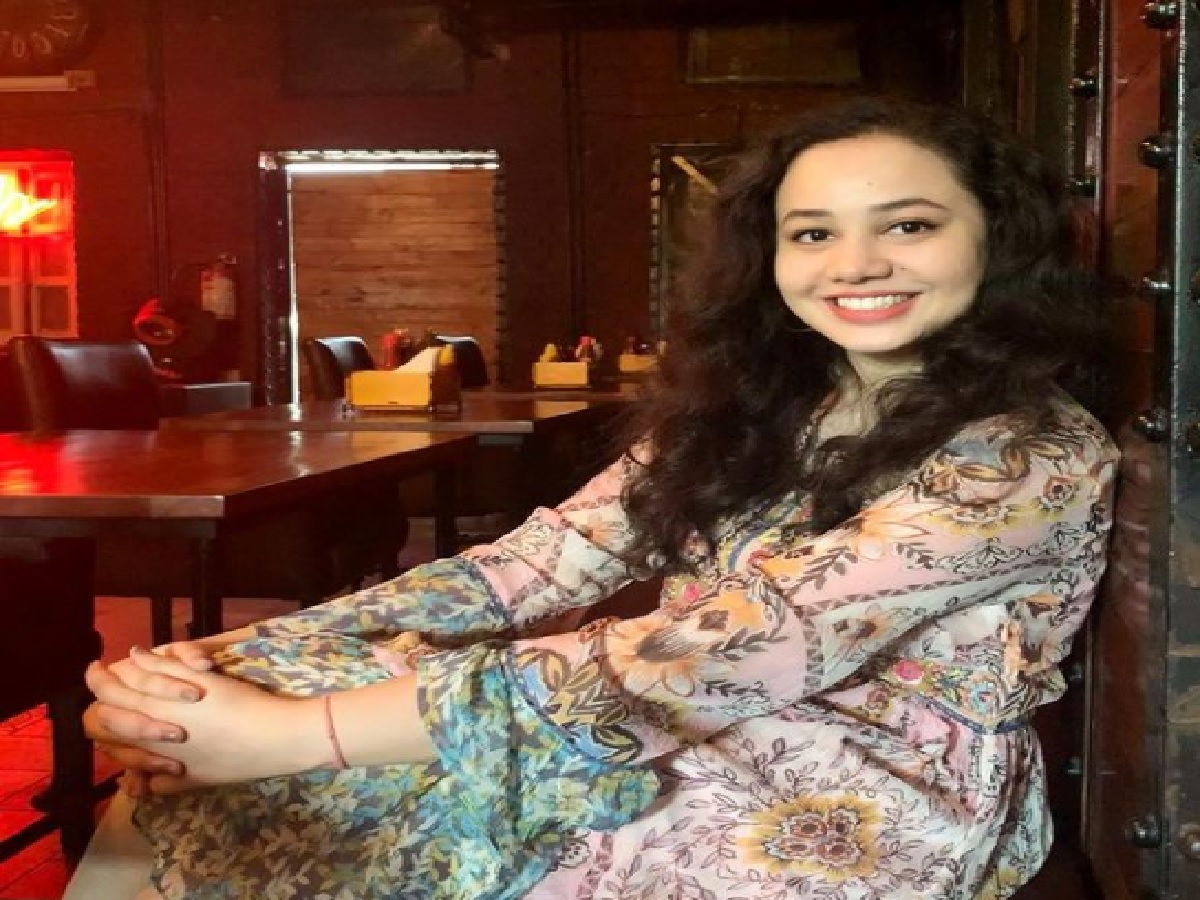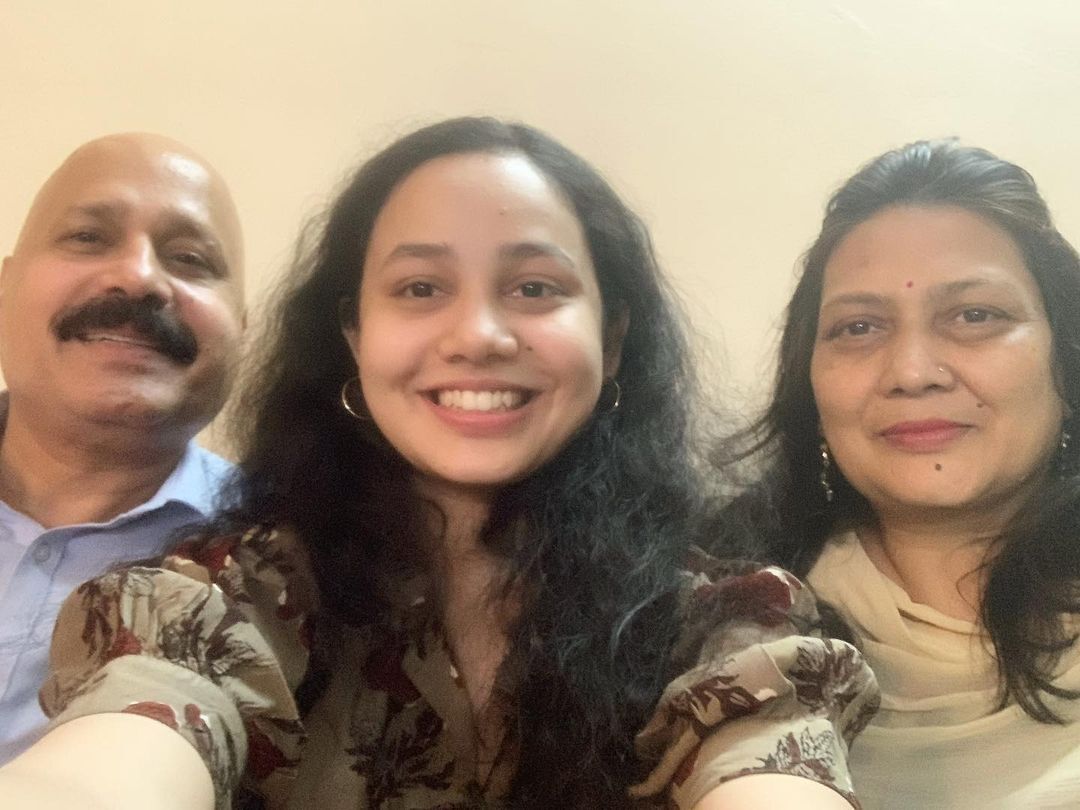Internet or Newspapers? UPSC Topper Ria Dabi Shares Current Affairs Prep Strategy for CSE
UPSC CSE 2020: IAS officer Tina Dabi's sister Ria Dabi, who bagged AIR 15 rank in the civil service exam, shares her revision strategy and how she prepared for current affairs.

The Union Public Service Commission (UPSC) announced the Civil Service Examination (CSE) 2020 results and a total of 761 candidates – 545 men and 216 women who have cleared the examination. Ria Dabi, 23, was one among those who cleared and has secured an All India Rank (AIR) of 15 in the examination.
A student of Convent of Jesus and Mary in Delhi, Ria went on to pursue her graduation in political science from Lady Shri Ram College of Delhi University. Having graduated in 2019, she says that she started her CSE preparation soon thereafter. Speaking to The Better India, she says, “I always knew I wanted to attempt the CSE. Having witnessed my older sister (Tina Dabi) clear the exam and top it, has been an inspiration for me.”
She continues, “I knew what kind of rigour this examination required and while there were some tough days, I kept drawing support from my family to continue studying and preparing.” She adds that her consistency is what led her to ace the examination and urges other aspirants to follow a very consistent study schedule throughout their preparatory journey.
Ria shares some of the techniques that worked for her while preparing for current affairs:

“Throughout my preparatory journey I stuck to reading two newspapers for current affairs primarily. These were The Hindu and The Indian Express. I did not look up content on the internet much only because I am more comfortable with having a physical copy of the resource material in front of me,” she says. She also adds that as additional material one could also refer to the current affairs magazines that are released by various coaching institutes.
“These current affairs magazines are also comprehensive and give an aspirant enough material to prepare,” she adds. Aspirants must be diligent in their preparation and following a schedule while studying is very important. Sharing her own routine, Ria says, “I started the day by reading the newspaper. I thought it important to start my day with having an understanding of what was happening around me. It would take me close to 1.5 hours to read through the entire newspaper each morning,” she says.
Speaking about how she went about reading the newspaper, she says, “I would first look at the papers, cover-to-cover, to make sure I had an idea of everything mentioned. I then started reading in-depth and would usually leave out the business and sports section, both of which are not very widely asked topics in the UPSC CSE. Pay attention to the editorial as this offers great material while writing the essay answers at a later stage.”
In order to recollect all that one reads in the newspaper, Ria shares a tip that worked for her. She says, “I would cut out news articles that I found relevant and paste it in my folder. I would revisit the same for revision once every few days. In case there was a news article about a certain event or occurrence, I would make a note of the same in my notebook and also find additional information to substantiate it. Most importantly, revisit the notes every few days so that it remains fresh in your mind.”
For any of this to work effectively aspirants must ensure that they know the syllabus very well.

This will help in picking topics that are important while reading the newspaper. “Always keep that in the back of your mind,” says Ria. Examples of the kind of news articles Ria would cut out to revise later included newly launched government schemes, information about any summit or conference being held, articles about the environmental condition in the country and international relations.
She adds here that one must be smart while studying for the UPSC CSE. “It is not just about what you study but how well you study them and are able to recollect them. Revision is key to success in this examination and you must ensure that you are doing it at regular intervals.”
She adds, “Once I had read the article, I would repeat the key points out loud. In case I was unable to recollect too many details I would try and jot down the important points without referring to the news article and felt that the information stayed with me better this way.”
One mistake that aspirants often make, Ria warns, is the use of too many resources. “The syllabus itself is vast and therefore aspirants must try and curtail their study material to what is essential. Stick to NCERT and build your foundation using those. Additionally, get only books and resource material that will add value to your existing knowledge base.”
In conclusion, she says that working on your presentation skills to ace the essay section will also do aspirants good. “Begin with a powerful quote, statistics or even an anecdote or incident that grabs the attention of the examiner. Ensure that your essay follows a very clear structure and flows from one paragraph to the other. Offering the examiner a wide perspective will enhance the score that you get. Always ensure that you end on a positive note and refrain from being overly pessimistic or critical.”
Resources for current affairs:
1. Current affairs magazine by Vision IAS
2. The Hindu
3. The Indian Express
(Edited by Yoshita Rao)
If you found our stories insightful, informative, or even just enjoyable, we invite you to consider making a voluntary payment to support the work we do at The Better India. Your contribution helps us continue producing quality content that educates, inspires, and drives positive change.
Choose one of the payment options below for your contribution-
By paying for the stories you value, you directly contribute to sustaining our efforts focused on making a difference in the world. Together, let's ensure that impactful stories continue to be told and shared, enriching lives and communities alike.
Thank you for your support. Here are some frequently asked questions you might find helpful to know why you are contributing?













